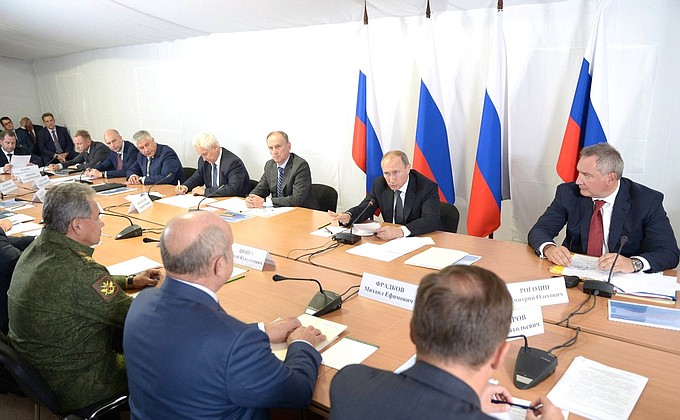Shefstvo, the creation of patronage relations between units of the armed forces and local governments, is a Russian practice dating back to the 1920s. Though it nearly disappeared at the end of the Soviet era, it re-emerged in the 1990’s when rampant inflation, reductions in military spending and embezzlement created problems of catastrophic proportions for the army. Exchange networks of a more or less spontaneous and informal nature grew up between the local authorities and the military units in order to provide the soldiers with material support such as money, food and clothing. When Putin began his second term in office and launched various campaigns promoting patriotism, the nature of these patronage relations underwent a change: the army began to seek sponsors on its own initiative and it also took on the role of public educator. The ideological aspect of shefstvo regained fundamental significance. • • 1The coming of perestroika and glasnost’ meant that the Russian army's internal dysfunction, its financial difficulties, and the suffering endured by its conscripts (particularly dedovshchina, or violent hazing) were finally revealed to Russia and to the rest of the world.
The living conditions of servicemen and conscripts worsened with the return of the troops from Germany and the subsequent economic crisis, and corruption in the armed forces intensified the problem. The presidency of Boris Yeltsin not only failed to bring an end to these difficulties, it had quite the opposite effect. 2A neglected and abandoned federal army soon began to develop a wide range of survival strategies; actual farms were set up inside the barracks and officers took on second jobs (a practice largely encouraged by the army's leadership). Yet these countermeasures did not bring an end to the crisis - the army only sank deeper into it. Living conditions within the army continued to deteriorate.


• • 3During the chaotic period which extended through the mid-2000's, the population, the local authorities, and various enterprises all rallied in an unprecedented way to come to the army's aid, ensure safe conditions for the recruits and thus compensate for the government’s deficiencies. Although a large part of the population - mainly from large urban areas - regularly devised various complicated strategies to have their children exempted from the obligation of military service, there were also others - mostly from the regions - who gave generous aid to the starving soldiers. 4This mobilization of the population and local governments was made possible largely due to an affiliation between the army and society that dates back to Trotsky; ties that were internalised by the population during the Soviet period and resurfaced in post-Soviet Russia. The cultivation of patronage relations, known as ' shefstvo' (patronage or sponsorship), appeared within the Red Army at the end of the Russian Civil War. The government saw shefstvo as constituting a genuine 'relationship' between the army and the local authorities.
Its objective was twofold, as it aimed both to procure for the military material aid, such as monetary donations and essential supplies, and also to promote certain ideological aims, such as unity between the army and the people. 5The form of ' shefstvo' that took hold at the beginning of the 1990s was informal and only involved material support. It was spontaneously initiated by the population as a response to the army's dire financial situation, and was only later taken up by the regional authorities. As the years went by, the phenomenon gradually underwent a change without entirely vanishing. While the presidency of Vladimir Putin did contribute to better living conditions in the army, it did not eliminate the practice of shefstvo. Thus there is a paradox, one that this text aims to decipher by analyzing the origins of this phenomenon, the conditions surrounding its resurgence, and its forms and variations under Boris Yeltsin and Vladimir Putin. • • 6First appearing within the Red Army at the end of the Civil War, under Trotsky's command, shefstvo (i.e., patronage or sponsorship), established relations between the army and the local authorities or collectivities.
Serial key for errorfix advanced. Many downloads like Errorfix Advanced Registry Repair may also include a serial number, cd key or keygen. If this is the case it is usually included in the full crack download archive itself. Otherwise you can try the serial site linked below.
Most Viewed Pages
- Pdf Avtech 4ch Mpeg4 Dvr Manual
- Hp Color Laserjet 2605dn Driver Windows 7 Download Free
- Caterpillar Et Factory Passwords Change Keygen Generator Crack
- Purin To Ohuro V2 Leaked Download
- Conan The Barbarian 2011 Dual Audio Torrent
- Resetter Canon Pixma Mg2470 Download Google
- Download Blank The Four Steps To The Epiphany Pdf Free